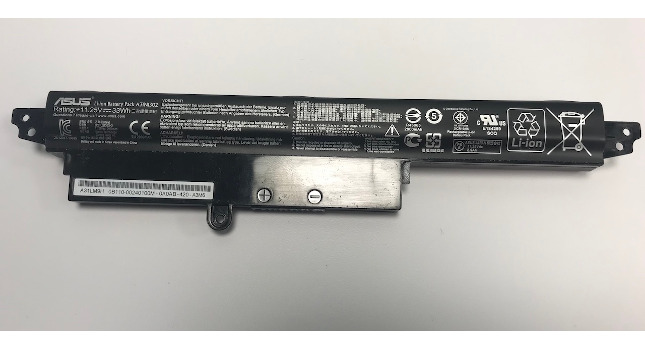Outsourcing, in my opinion, is the single most compelling business issue facing the plant engineering and maintenance profession today. I agree that it is, as one advertisement suggests "inevitable.
Outsourcing, in my opinion, is the single most compelling business issue facing the plant engineering and maintenance profession today. I agree that it is, as one advertisement suggests “inevitable.” I also agree that outsourcing will increase at a faster rate as we enter the 21st century. In fact, the market may even hit $30 billion by 2003 (three times as much as today).
But I also believe outsourcing should be evaluated closely before making a decision to save short-term dollars. Outsourcing reminds me of the downsizing that prevailed in the 90s and the negative results it has reaped. I haven’t read many success stories about companies who outsourced. And I believe that I know why. There aren’t many success stories to tell. The surviving employees are scared and have no company loyalty.
It’s not that outsourcing won’t work. In many cases, it is a viable alternative, especially when the selection process is well thought out and properly applied. A facilities manager or plant engineer should always consider outsourcing an option. At the same time, he should be mindful that the road to successful outsourcing is not only saving money but also building business friendships with the outsourcer. And those friendships start with building friendships with company employees who are affected by the process.
I say friendships rather than partnerships because many partnerships, like many marriages, end in divorce. I’ve talked to heads of maintenance who have had problems finding contractors who are committed to handling their service needs or to doing a quality job. Almost all contractors start off with great promises and a great appreciation for the work. After a few months, their interest diminishes.
Commitment must come from both sides. Yet the goals of doing a quality job and maximizing profit contradict each other. And guess which one wins out? True friendships need to happen for a long, trusting relationship to evolve. Too many contractors don’t recognize the true value of each individual employee. For example, in outsourcing, contractors make money by reducing staff, especially middle management. I’ve heard of 170 people being fired in the morning and 130 of them being rehired the same afternoon. The memories of that action will live forever in the minds and hearts of the affected employees, including the survivors. Will these employees ever be motivated to do their best or will they only do what’s necessary? The heart of productivity is people.
In plants, facilities engineering and plant management are a major target of outsourcing, even though it is a core business. Why? Because we haven’t educated top management otherwise. We need to educate and sell management on the contributions we make to the bottom line. Do you believe management would rid itself of a department that is efficient, effective, and contributes to the bottom line? I don’t think so.
Our major problem is leadership. We need to develop more leaders in plant engineering and facilities management. Obtain leadership skills and welcome the opportunity to examine outsourcing as an alternative that may help accomplish your company’s and your department’s goals and objectives. Be involved in the process or someone else will.
Ways to manage outsourcing
Let’s take a closer look at the outsourcing process and see what you can do to make it work. One definition of outsourcing is the subcontracting of services by a corporation or institution to compete more effectively and deliver products/services with the greatest possible value. I can understand how outsourcing saves money in the short term but do not understand where value comes into play. Reducing numbers of people in this way is not productive in the long run because it reduces intrinsic knowledge. Outsourcing should take the form of complementing and supplementing inhouse efforts.
Today’s corporations are beginning to mend the fences broken by the radical downsizing of the 90s. Restructuring and downsizing may have changed some companies for the better, but it may have weakened something vital to their competitive edge: The commitment of their people. People are the only thing a company has that its competition doesn’t. People must be involved in the process if productivity gains can be reasonably expected. It is amazing what people will do if they are treated well, respected, involved, and work in a positive, caring environment. If your goal is to gain a competitive edge, invest in people.
Progressive companies try to build leaders from within by focusing on management behavior. Learn to tap the creative and productive potential of your workforce. I can’t imagine how outsourcing can achieve these goals without focusing on building up a staff instead of tearing it apart. By judiciously supplementing its inhouse workforce with adaptive out-tasking, a facilities management/plant engineering and maintenance department can meet and exceed the advantages of outsourcing. We can provide the productivity, cost savings, and image top management wants to see in facilities if we take action.
A step-wise path to success
Positive attention and proper recognition from top management are best achieved by demonstrating “bottom line” contributions. Success will come to those who effectively communicate the impact of their activities to their superiors through demonstrated proficiency. The following suggestions go a long way toward helping you get the attention you deserve from top management.
1. Know the business of your business. Although it is easier said than done, it is essential to know the business of your business. Your department’s contributions should be measured against company goals, objectives, and other strategic planning initiatives. Facilities departments should be prepared to endure both progress and back sliding when either is in the company’s best interests. The emphasis on management instead of technical competence is increasing, and the plant engineer must keep up with the state-of-the-art technology and be flexible enough to adopt programs that keep with the company’s strategic plans.
2. Improve the image and efficiency of maintenance and other support services. Stop accepting mediocrity. Maintenance is generally viewed as the most nonproductive department in a plant, with minimal standards and quality, ineffective labor, and scheduling and maintenance techniques that date back 100 yr. Part of a manager’s job is to study outsourcing as an alternative to onboard facilities management. Take an objective look to see if positive results can be obtained through outsourcing. If you aren’t concerned and take action in this area, someone else will do the job for you.
3. Educate your boss. Don’t sell him. Management is usually uninformed about the positive contributions made by plant engineers and facilities managers. The boss doesn’t know a lot about what we do, and can’t unless we tell him. Communication should be in terms that top management can understand. It shouldn’t be self-serving. Use logic and know when to listen. Top management should know the positive side of plant engineering, especially as it affects the bottom line.
4. Document your savings, cost containment, cost avoidance, and productivity increases. Know the difference between return on investment and structured risk. Every time you make or save money, report it. Compile reports weekly, monthly, quarterly, and yearly and make sure that those results reach the right hands. You’ll be surprised at your accomplishments at year’s end.
5. Think “bottom-line.” In most cases, every overhead dollar saved is a dollar added to the bottom line. Some managers spend every penny in the budget because they feel if they don’t they will receive less the following year. This approach is a sure way to fail. Zero-based budgeting, by line item, should be a standard practice accompanied by a hard, comparative look at the costs of outsourcing alternatives, which in some cases are less expensive and more efficient than inhouse solutions.
6. Look for opportunities to make money or reduce costs. You can be an outsourcing alternative to someone else. There are many documented cases of one company performing services for another or two companies combining resources to minimize costs. Try something new and creative, get rid of what you don’t do well, and get better at what you do well.
7. Write articles and speak to groups. Share your expertise and experience. Most companies enthusiastically support outside involvement of employees and publicize these activities in company newsletters. Writing and speaking are one way of gaining the attention of top management. The experience you gain writing and speaking is valuable training that will help you sell ideas inside your organization.
8. Participate in professional societies and community organizations. Most companies are good corporate citizens and take pride in employees who serve their community. Become active in professional societies, company-sponsored functions, community service, and the political process and you will receive positive recognition. Teaching inhouse seminars as well as outside the company in your area of expertise also will be recognized. You will be given opportunities for leadership positions and honored for your accomplishments.
9. Take the initiative and speak up. Make your views known in a positive, constructive manner. Accept and respond positively to criticism instead of being negative and defensive. Learn to say no tactfully to impossible or unrealistic demands. Then look for ways to say yes and work cooperatively with others. Don’t be a complainer. Solve the problem, don’t be a part of it.
10. Motivate others. Be a leader, a manager, of others. Lead by example. Arrive early, stay late, make decisions expeditiously, give credit to others, and return calls promptly. These are good work habits that others should follow. Let people know you respect others who get the job done.
11. Plan, plan, plan. Plan your department’s work and your work to be in step with company objectives. Plan ahead and follow up. Proper planning is the key to accomplishment.
12. Understand financial statements. Those who understand financial statements seem to progress faster in their careers. It is important to express your plans in a manner that includes the financial impacts of various alternatives and evaluates them objectively. Financial expertise is increasingly important in today’s challenging and competitive environment. Spend time with the accounting department and work with them. Facilities management is a financially-based function. The likelihood of outsourcing would be limited if we understood finance a bit more.
13. Train, train, train. Keep yourself and others well trained. The importance of training can’t be overemphasized, especially training tied to organizational goals. Training that focuses on converting weaknesses to strengths is generally most helpful and yields the most results. Few people quit while in training.
14. Be a “changemaster.” View change made for competitive reasons as an opportunity that will yield better results. Most people resist change and must be educated to its value. Change is a way of life and adaptability to change is essential. Leaders lead change and lead by example. A new level of plant engineer has emerged over the last decade, one who takes on responsibilities beyond facilities. Today’s plant engineers and facilities managers must be administratively trained and adaptable to any condition that affects the company. They should be leaders who relish change and the opportunities that change brings.
Today’s facilities managers must be able to communicate effectively on all levels. They must be well respected by their peers and by top management. They must listen and give credit where credit is due. They must be planners and organizers who follow up well and care for their company, their profession, and their fellow employees, in that order. And they must be “champions” of outsourcing — that is, they must study and evaluate its potential contributions before top management gets involved.
Companies who haven’t outsourced are concerned with security, loss of control, and possible deterioration of quality. These are all legitimate reasons to pay more and keep tasks inhouse. Concerns that contractors will do as little as possible to increase profits are legitimate. Are there contractors in your area who can deliver value: High-quality maintenance for the dollar. Can they measure it and communicate it to management? Invite them to talk about how they could augment your workforce and help it to become more efficient and effective.
Great companies never profit at the expense of their employees. They care for their employees and invest in them. Study outsourcing. Work with outsourcers. But be careful before making a hasty decision.
A.S. (Migs) Damiani is President of the Donohoe Companies’ Mechanical Systems Operations Division, commercially known as Complete Building Services. He has spent more than 30 yr as a corporate facilities executive, serving as president or reporting directly to board chairs and company presidents; and has been responsible for the design, development, and maintenance of more than 125 major building projects. He holds a Bachelors degree in Commerce and Engineering from Drexel University and a Masters degree in Engineering Administration from the George Washington University. He is also a graduate of The Center for Creative Leadership. He is the author of a number of books and a frequent speaker at national engineering and maintenance conferences. He also conducts specialized “people skills” training for a variety of organizations and industries. For more information, contact the author at 202-333-4977.



